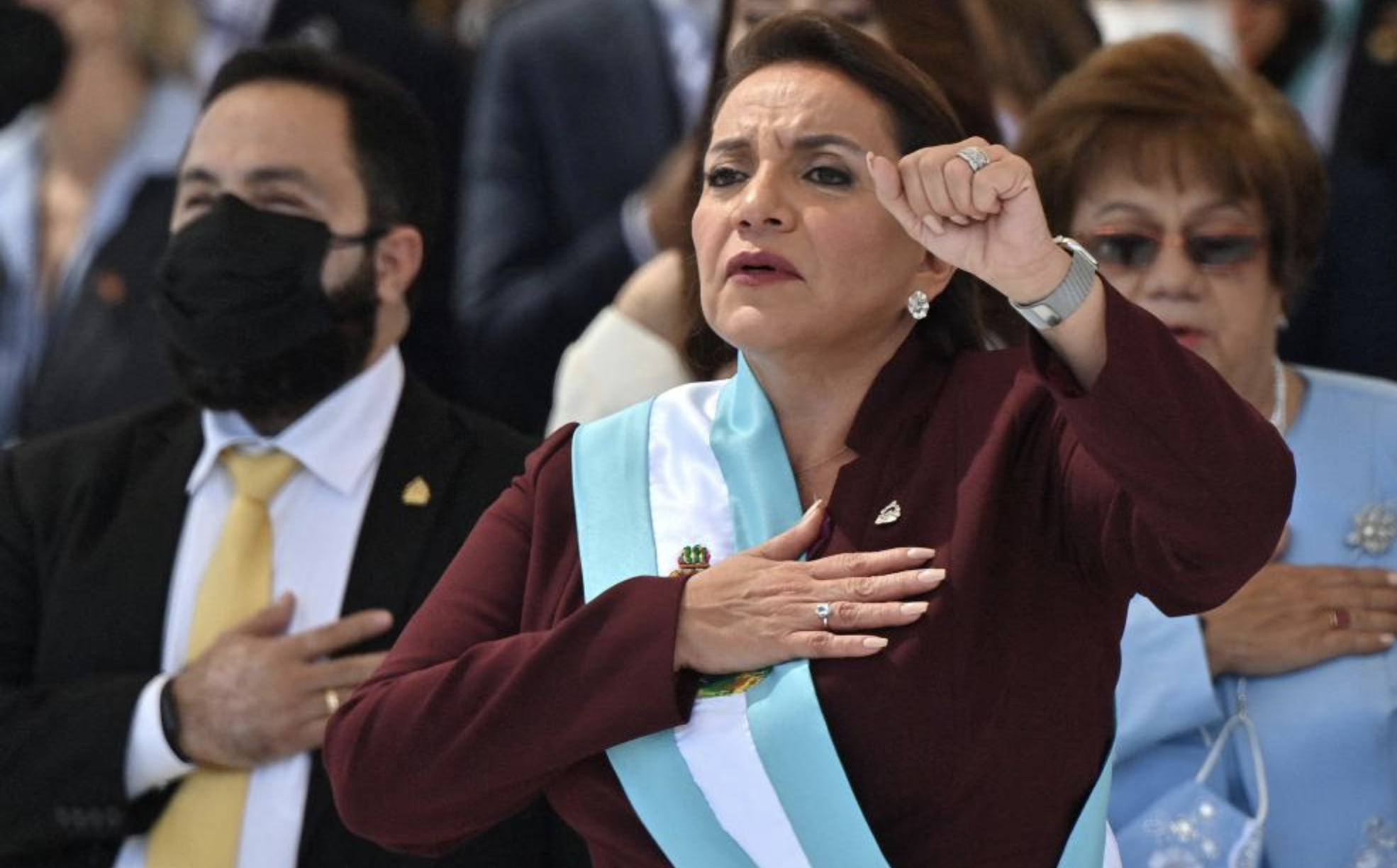EDITORIAL
What Does The Election of Xiomara Castro Mean For Honduras?
Photo courtesy of CNN.
By Natalie C. ‘23
On January 27, 2022, Honduras swore in its first female president, Xiomara Castro. Castro was the wife of former president Manuel Zelaya, who was deposed in a US orchestrated coup in 2009. Castro ran on a progressive platform, tackling issues of corruption, inequality, and poverty--problems that have plagued the country under the rule of the National Party of Honduras.
Prior to Castro taking power, Honduras was ruled by Juan Orlando Hernandez. Under Hernandez, more than 66% of Hondurans lived in poverty. In rural areas, one in five people lived in extreme poverty. Honduras was also plagued with violence with the third largest homicide rate in Latin America and the Caribbean, just behind Venezuela and Jamaica. Corruption has also steadily worsened every year since 2015. Honduras under Hernandez was ruled by the drug cartels at every echelon of the government. In 2018, US authorities arrested Honduran congressman Tony Hernandez, brother to Juan Orlando Hernandez, on drugs and weapons trafficking charges. The president himself was also found guilty of similar charges. In 2021, the DEA revealed that they had been investigating Juan Orlando Hernandez since 2013. This means that the US Justice Department suspected him of corruption even while he was considered an ally by the State Department and the Pentagon. The US knew for a long time that Hernandez had been involved in drug trafficking. However, his intent to protect US economic interests in Honduras ensured US support, despite the many human rights abuses that occurred under his rule.
With a country reeling from the instability,violence, and near economic ruin brought about by Hernandez, it is no surprise that Xiomara Castro won with a 20% lead over the National Party. In her inaugural address, Castro promised to alleviate poverty, corruption, and violence. She also suggested repealing a variety of laws passed by Juan Orlando Hernandez from 2013-2014 that suppressed protests and promoted the looting of public wealth and contracts. On the environmental front, the president also banned mining permits for minerals in rivers, lakes, and national parks. She also promised one million families an exemption from paying for electricity and to create subsidies to stabilize fuel prices. Finally, in regards to civil liberties and protecting democracy, Castro promised to approve a Citizen Participation Law which would allow the Honduran people to be consulted upon for reforms and approval of laws. She also announced the adoption of a law which would prohibit illegitimate re-elections and the installation of the International Commission Against Impunity in Honduras, a decision which had support from the UN.
However, the election victory might have been the easiest part to obtain. The government of Juan Orlando Hernandez has left Honduras with about 9.25 billion dollars in external debt, coupled with Honduras’s internal debt of about 7.3 billion dollars. In comparison, Honduras’s GDP is only about 23 billion dollars. The debt, according to Castro, is unpayable and eats up almost 50% of the government budget. As a result, Castro’s ambitious social projects appear out of reach. Castro faces a variety of challenges in her term ahead: poverty, debt, violence, and corruption. Although it remains unknown as to how much the election of Castro will ameliorate the many problems that plague Honduras, there is still hope that her election marks a turning point in Honduras history. She is the first woman to be elected president in Honduras: a major stride in gender equality, especially for a country like Honduras which had the highest femicide rate in the world in 2020. The path for change in Honduras remains uncertain, as centuries of history cannot be erased with a single election. However, Xiomara Castro could be the first step towards positive change for Honduras.

